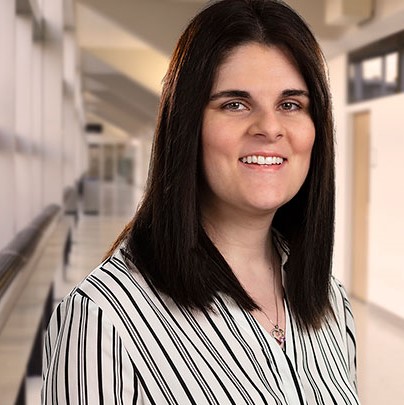People, in particular veterans, are often skeptical about how helpful alternative therapies can be for their symptoms of TBI and PTSD. A Marine Veteran herself, Veteran Outreach Director of Wounded Warrior's Road Home Program was resistant to try mindfulness, meditation, and yoga; these practices seemed ridiculous to her. But with time and patience, she began to feel great benefits of them.
[Music]
Mindfulness works really well if you can, I guess, as I like to say if you buy into it. It's not just breathing exercises and, you know, holding on to, uh, you know like a rock, or whatever. There's a lot more in on it as well. So we do mindfulness, and we also do yoga, and we have an acupuncturist as well, and then we have the chaplain on staff, which kind of falls under that whole wellness aspect. I was so resistant to it for the longest time. So I was like, I've been breathing perfectly fine for 32 years. I don't need help, you know, having somebody tell me how to breathe. I originally, when I first tried it, and I told my therapist, I was like, "I hate this. This is terrible." I was like, "I feel like ants crawling all over my body right now because you're making me breathe in a different way than I'm not used to. But you know, after, you know, having probably two or three years of trying mindfulness, it one day just kind of clicked. At the Road Home, you know, we understand that mindfulness doesn't work for everybody and that's okay. We do the poetry, we do the breathing techniques, you know, relaxed poses you know, we just try to make it as comfortable as possible. And we have veterans that really, really like it and we have veterans that don't, and that's okay. For the yoga aspect, so I am one of those that I can barely touch my toes, you know. So like, I was always worried about, like, well, I can't do all those crazy poses. When it comes to coming through a program like ours, or most programs, is they make it adaptive to your needs. They're going to adapt it to what you can do, which is really important, so you get the best experience out of it. We're not expecting everybody to absolutely love it because, you know, you can't absolutely love everything that you do, but you can get something from it.
[Music]
Brainline is powered in part by Wounded Warrior Project to honor and empower Post-9/11 injured service members, veterans, and their families. For more information about PTSD please visit BrainLine.org. BrainLine is a service of WETA, Washington, D.C.
About the author: Ashton Kroner
Ashton Kroner is the Veteran Outreach Director of the Road Home Program, part of the Wounded Warrior Project's Warrior Care Network. Ashton served in the United States Marine Corps for five years as a Field Radio Operator with 8th Communications Battalion, Camp Lejeune, North Carolina. She deployed in 2009 in support of OIF receiving orders as a Lioness attached to 1st Battalion, 8th Marines in Al-Taqaddum Air Base. In 2011 she deployed to Camp Leatherneck in support of OEF with 8th Communications Battalion.

